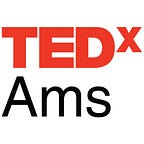Why Do We Fear Diversity?
TEDxAmsterdam blogger Nies Medema reflects on the Unlimited Identity Congress held in Leiden October 2015. In response to surprise speaker Ayaan Hirsi Ali’s simplistic categorization of refugees, Medema asks: “How are we suppose to discriminate between these people standing at our borders?”
It was an interesting meeting today at the Unlimited Identity Congress in Leiden largely because of mystery guest Ayaan Hirsi Ali. Ali’s plea was one that is currently plaguing the world, one of the refugee crisis. She hopes to change the migration and refugee system in The Netherlands. In her talk, Ali suggests formulating criteria for foreigners coming in to the Low Countries. The divisions were simple — the Adapter (highly educated foreigner with jobs), the Menace (young criminals), Fanatics (who want to introduce Sharia Law), Coaster (unemployed people aged 40 years and older). She asked the audience which category they would prefer in their country. The answer was simple.
I was amazed by the lack of knowledge these categories indicated. The Coasters of today were once young and energetic migrant workers, and the Menace more often than not people born and raised in the Netherlands. So how are we suppose to discriminate between these people standing at our borders?
There were some questions from the audience. ‘What does it say about our identity as Dutch people if we select people like that: by their ability to work?’ a young woman asked.
Alex Pelmekian (son of a Turkish Armenian refugee) stood up in the audience and stated: ‘My father got asylum here, and I, with my father, and my daughter is with me.’
Numbers
Generally, the speakers of this first day of the conference can be divided into two categories: the ones pleading for compassion and dialogue as a basic human value and the ones in favor of closing the borders of Europe. The latter emphasiced numbers: hundreds of thousands or millions heading towards Europe. We are too small to receive them all. 7 billion people will not fit in Europe. Categorizing people in favor of open borders as soft and naïve.
Hearts of stone
‘We don’t need to turn our hearts into stone,’ says Irish politician Pat Cox. ‘When we see people drown, of course we’ll save them. And after that we start looking for ways to work on the problems we face, giving people opportunities to fit in, to develop. We want to mobilize all available energies.’
Compassion is hard work
Manuela Kalsky (Amsterdam University VU) spoke about super-diversity and the forming of a generation with Multiple Religious Belonging (MRB). She noted the phenomenon of religious identities shifting towards a more hybrid form.
‘You can be Buddhist and Christian, or socialist Islamic’. She says, pleading for compassion. ‘True understanding, though often seen as a soft skill, is actually hard work.’
Successful non-adapters
The only category accepted by the audience was the Adapter. Come to think of it, all my migrant and refugee friends and colleagues who have good positions in society are stubborn, critical nuisances. Not exactly the character traits you would expect from an Adapter. Maybe that is why so many of them live in Amsterdam where they fit in. Amsterdam, after all, is famous for being controversial.
When I got home, I watched an interview with Kasja Ollongren, the deputy-mayor of Amsterdam. She said Amsterdam would start trying to link 1500 new refugees to employers. Officially, the law does not allow this precedent. It’s extremely provocative, not at all what some ministers of our cabinet in The Hague want. However, as controversial as this is, this act made me proud to be an Amsterdammer, even if that is only one of my many identities.
Written by Nies Medema.
Categorized as Amsterdam.
Tagged with refugees, United Identity Congress.
Originally published at tedx.amsterdam on October 15, 2015.
